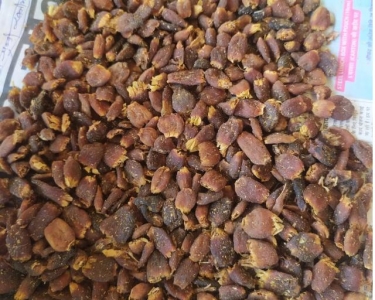Live animals
Couldn't find the product you want?
Fill out this form to request the product.
Products You May Like
Export from Equatorial Guinea
Equatorial Guinea is a small country situated at the west coast of Central Africa. The country has the 20th highest GDP in the world, but it ranks 121st out of 177 countries on the United Nations Human Development Index. It should be mentioned that Equatorial Guinea is the 3rd largest oil producer in Sub-Saharan Africa, after Nigeria and Angola. Oil accounts for 80% of the country's total exports and 90% of government revenues. Other important economic sectors include forestry, farming, and fishing. The second-biggest exported commodity is timber. The main cultivated crops include cocoa, coffee, rice, cassava, bananas and palm oil nuts.
The government's objective is to diversify Equatorial Guinea's economy by developing sectors such as agriculture, fishing, mining and petrochemicals, tourism and financial services. Equatorial Guinea possesses some natural, namely copper, gold, iron ore, manganese, titanium and uranium deposits which are not fully developed at the present.
Equatorial Guinea is the world's 86th largest exporter, the main exports being crude petroleum, natural gas, timber, cocoa and fish. The country’s main export partners are China, UK, Brazil, France and Singapore.
Import to Equatorial Guinea
The exploitation of oil and gas reserves have contributed to a significant economic growth, but Equatorial Guinea's economy remains dominated by petroleum production. The country's manufacturing sector is very small, this is why Equatorial Guinea has to import the missing commodities. The major industrial production include cement, bleach, tuna canning plants, small-scale soap manufacturing and food processing. Agriculture accounts only for about 4.5 % of the country's GDP, while industry (mainly oil extraction) represents 87.3% of the GDP.
Equatorial Guinea is the world's 159th largest importer, it's major imports being ships, boats, machinery, electronic equipment, iron and steel products, beverages, vehicles, furniture, meat and salt. The country's main import partners are Spain, China, the United States, France and Cote d'Ivoire.
Check Out Export Portal: A Site That Lets You Export Live Animals
If you are looking to buy and export animals, then you came to the right place! Export Portal's Live Animals Department is an online marketplace for sellers and buyers of any livestock. We work to contribute to the live export industry, which brings many economic advantages and other benefits to countries that rely heavily on livestock imports. In fact, in just Australia alone, this industry contributes roughly $1.8 billion to the country's GDP each year. Moreover, it also ensures food security while helping people meet their protein needs as well.
Finding the Right Animal
We feature a wide range of pigs, cows, sheep, goats, horses, rabbits and hares, turkeys, bees, and fish for sale. An increasing number of American, Australian, German, South African, Argentinian, and Italian farmers and companies are advertising their livestock with Export Portal, portraying just how effective and helpful our site is.
To help customers make more informed purchasing decisions, our site lets users narrow down their searches by the age, breed, and sex of the animal. If you are feeling hesitant to shop on our site and want more detailed information, make sure to check out our seller ratings and reviews, which are written by our buyers and customers. We also collaborate with hundreds of trusted international shipping companies that arrange the transport of all kinds of animals and birds to any country in the world.
Online Shopping is More Simple with Export Portal
Export Portal is an ideal site for everyone who is an avid online shopper. Our convenient options make it easy to find and buy whatever you are looking for. Our seller network from all over the world has everything you need, and our customer support team will make sure you can find it. Our wide assortment of products will be sure to provide you with the best shopping experience. Make sure to check out our site and items today!
Customs requirements of Equatorial Guinea
Equatorial Guinea Customs Contacts
The Government of the Republic of Equatorila Guinea
http://www.guineaecuatorialpress.com/index.php
Ministry of Foreign Affairs
http://www.mae-ge.org/index.php
Equatorial Guinea is a country situated in Central Africa, bordered by Cameroon and Gabon, sharing maritime borders with Nigeria and São Tomé and Príncipe. Equatorial Guinea is a member of the African, Caribbean, and Pacific Group of States, Economic and Monetary Community of Central Africa (CEMAC),World Trade Organization (observer) and other international organizations.
Tariffs
Equatorial Guinea is a member of the Central African Economic and Monetary Community (CEMAC) and applies the customs duties based on the CEMAC common external tariff, which are ad valorem. The common external tariff is applied on the c.i.f. value of products.
There are 4 basic categories of taxable goods:
- basic necessities - 5%
- raw materials and equipment - 10%
- capital goods – 20%
- consumer goods - 30%.
Importers will also have to pay other fees and taxes such as the VAT tax, which is 19,25% for most products and 0% for exports or services. There is also a CEMAC community integration tax (TCI) of 1% and a community integration contribution (CCI) of 0.4%.
As a member of CEMAC, Equatorial Guinea follows the organization’s general standards.
Documents for import
- Bill of lading
- Cargo release order
- Commercial invoice
- Customs Import declaration
- Packing list
- Terminal handling receipts
Sources:
http://web.ita.doc.gov/tacgi/OverSeasNew.nsf/alldata/Equatorial%20Guinea
https://www.guineainfomarket.com/tramites-importacion-adudarena-en-guinea-ecuatorial/
http://www.doingbusiness.org/data/exploreeconomies/equatorial-guinea/trading-across-borders/





